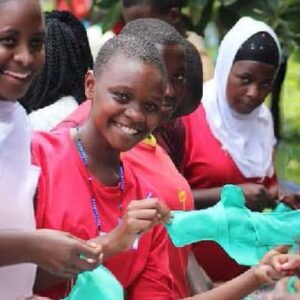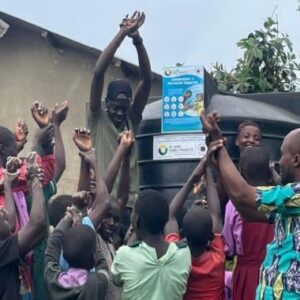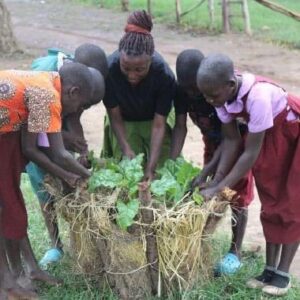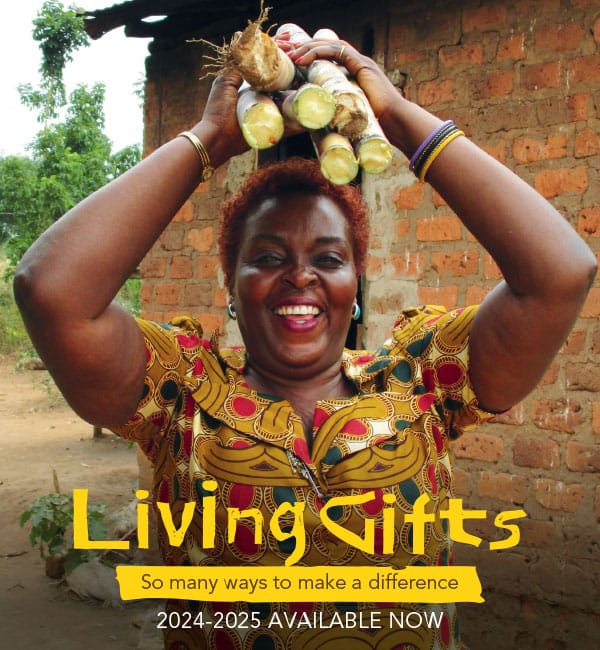
For many of the overseas projects, additional funds have been sourced from the Australian Government’s Department of Foreign Affairs and Trade, or DFAT under the Australian NGO Cooperation Program funding.

For many of the overseas projects, additional funds have been sourced from the Australian Government’s Department of Foreign Affairs and Trade, or DFAT under the Australian NGO Cooperation Program funding.

Proud and resilient women farmers.
In Uganda, poverty stands at 55% and food security is a worry for 69% of the population. In the face of climate change, the reality for the majority whose rural livelihoods are dependent upon agriculture, is a challenging one. Recent years have seen collapsing staple food production with an estimated 10.9 million people experiencing hunger on a daily basis.
QSA recognises, as in many places around the world, that women are the often-invisible mainstay of the country’s agriculture and the backbone of the rural economy. Women are key to bringing food and water security to their families and their communities, and yet they receive a fraction of access to resources and training compared to men, and are disproportionately affected by poverty.
Food security means more than simply having enough to eat, but having access to nutritious foods all year round, for all members of the household.
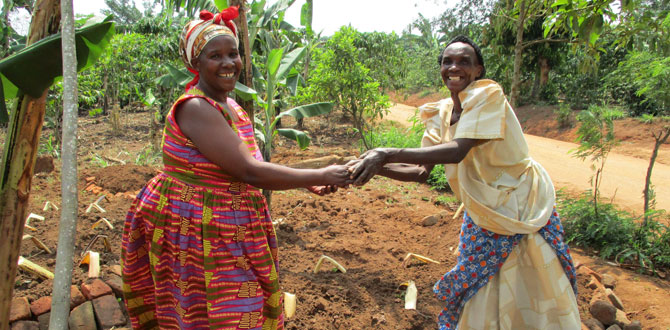
Many of our farmers find strength in unity
We support rural women farmers – some of the poorest of the poor – to achieve food security through training in organic agriculture so that they can maintain and improve resilient small-scale farming and food gardens on what little land they have, harvest and store produce for sale or later consumption, and save seed for the next year’s crop. By ‘resilience’, we often speak of the ability to adapt to the impacts of climate change in relation to agricultural pursuits, and to navigate local markets to sell surplus produce for income. Much of our work also reaches into the broader sense of resilience and long-term sustainability: we invest in our local partners and encourage an interdisciplinary approach, integrating gender concerns (including sharing the burden of labour), promoting education, community and social cohesion, cooperation and local leadership.
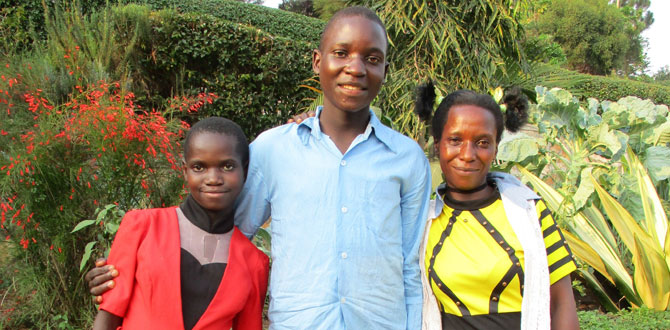
One of our happy and empowered farmers celebrates with her family.
By the end of our projects, our typical farmer and their family has raised themselves – from virtually zero income – to above the international poverty line, using the skills, knowledge and networks they have gained through their participation.
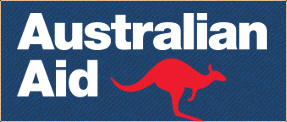
Some of QSA's projects are delivered in partnership with the Australian Government through the Australian NGO Cooperation Program (ANCP).
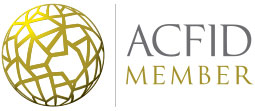
QSA has signed onto the Australian Council for International Development Code of Conduct See www.acfid.asn.au for details.
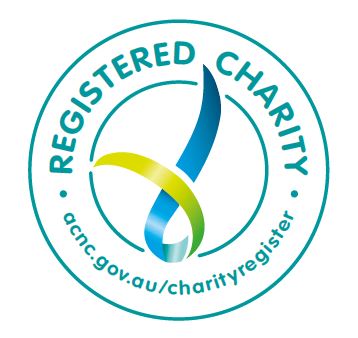
QSA’s policies
If you would like to understand more about QSA’s approach to its development work, this website shows you some details of the various projects currently being supported, and for the theory behind …
If you have a grievance, complaint or dispute find out about our procedures here.
